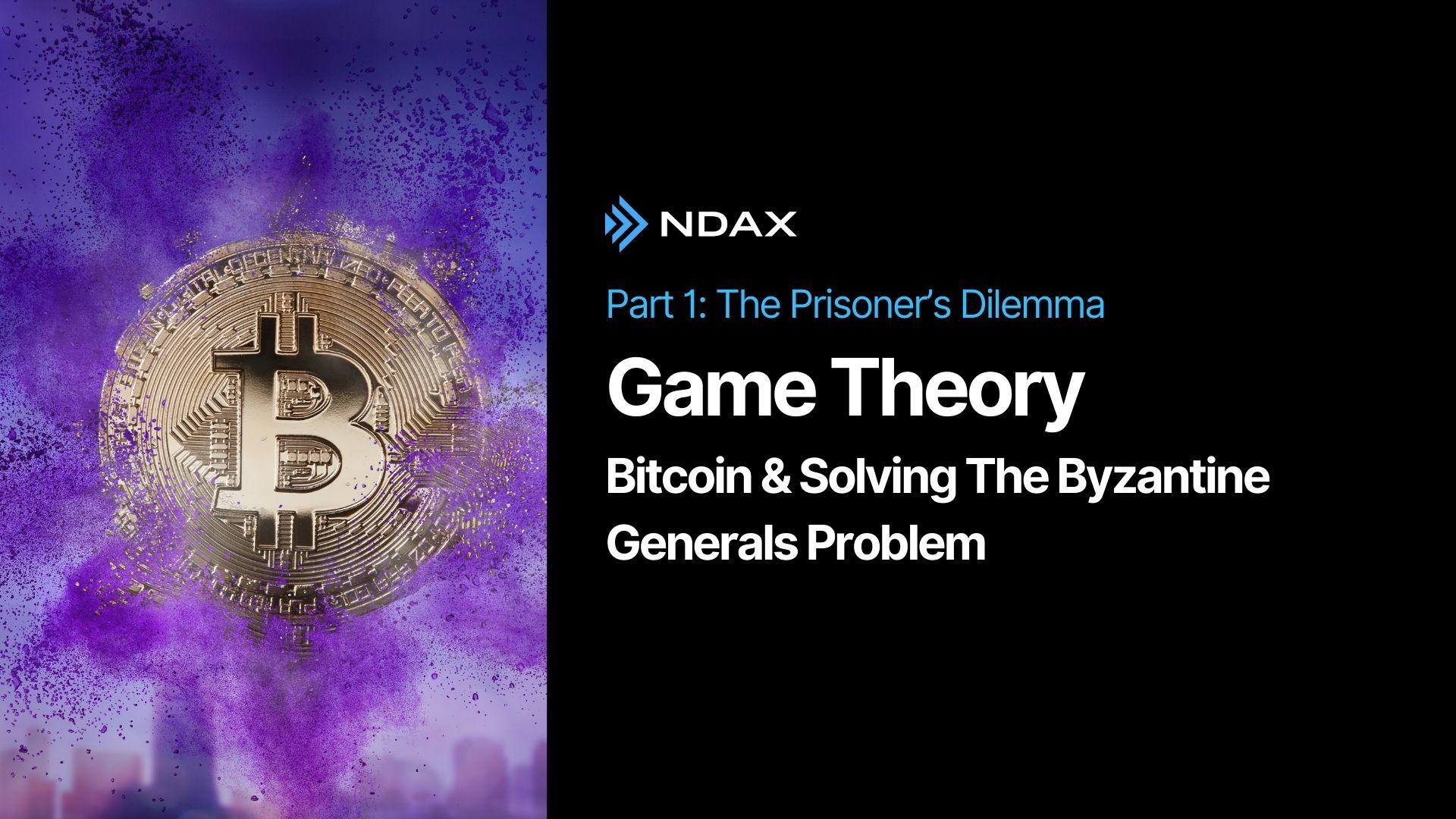Part 1: Bitcoin, Game Theory and the Prisoner’s Dilemma

Bitcoin is a revolutionary form of currency which has transformed the way we think about money. Like many other game-changing discoveries before it, Bitcoin synthesizes several innovative technologies in ways we’ve never seen before: these encompass (among other inventions) game theory, which ensures secure and reliable transactions. Similarly, the Byzantine Generals Problem is a classic computer science dilemma that relates to distributed systems and is considered one of the most difficult problems to solve… One of Bitcoin’s gifts to the world was solving that problem.
Bitcoin achieves this by using a consensus algorithm that ensures that the majority of computers in the network will verify the same transaction. This system thus ensures that transactions are secure, reliable, and immutable–without a central authority! Using game theory, Bitcoin has solved this problem which has perplexed and eluded scientists and political and military strategists since the dawn of time…
Why are we being so dramatic? For good cause–let’s explore.
What Is Game Theory?
Game theory is the study of strategic decision-making. It’s often used in business, economics, political science, psychology and any form of negotiation. Game theory can be used to analyze situations where there are conflicting interests.
The most common application of game theory is the prisoner’s dilemma which asks how two rational individuals can cooperate when they have different incentives. The problem is called the prisoner's dilemma because it applies to a scenario where two prisoners are each (separately) offered the same deal: if they turn on their fellow prisoner, they will go free while the other prisoner does long, hard time (5 years). If however, neither cooperates, they both do a negligible stint in prison (1 year each). And if both betray each other, they each do 3 years. The best outcome for both is to stay faithful to each other. But the temptation is strong to risk ratting out a partner to skip that 1 year in prison. It creates a dilemma because each prisoner is incentivized to cooperate with the police, even though it isn’t in their best interest.
The key feature of the prisoner's dilemma is that it illustrates how two individuals might make a ‘rational’ decision that leads to a worse outcome for both of them… This game theory dilemma has been used to model various real-world situations, including business competition, arms races, and environmental treaties.
The Byzantine Generals Problem is another classic game theory problem. The problem is based on a story about generals trying to decide whether to attack a city. The generals must communicate with each other, but they cannot be sure that everyone is telling the truth. Game theory is used to find solutions to this problem–but first:
Political Theory
In political theory, the Byzantine Generals Problem is a thought experiment that illustrates the challenges that arise when parties with conflicting interests must communicate and cooperate with one another, or face even less desirable outcomes. (Cold War “MAD”--Mutually Assured Destruction–anyone?) The problem is typically used to illustrate the importance of trust and effective communication in any situation where cooperation is required.
As a decentralized and trustless system, Bitcoin solves the Byzantine Generals Problem by allowing parties to cooperate without needing to trust one another. This is what has become known as Trustlessness. (It is Bitcoin’s gift to the world. And yes, that’s Bitcoin–not blockchain.)
Through game theory, Bitcoin incentivizes parties to behave in a way that is beneficial to the group as a whole, even if it isn’t necessarily in any particular actor’s best interest at that time. This is because Bitcoin provides a way for parties to cooperate without relying on trust or communication, two of the key factors that often lead to problems in situations like the Byzantine Generals Problem. So let’s go into a little more detail about this famous ‘Problem’ and how Bitcoin solves it through game theory.

